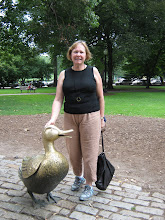World Lake Day is an observance celebrated by the United Nations to raise awareness of the importance of lakes and their ecosystems. Lakes are one of the most vital natural resources on our planet.They serve as a crucial source of fresh water, supporting drinking water supplies, agriculture, and industry.
Lakes also play a key role in maintaining biodiversity, offering a habitat for countless species of fish, plants, and wildlife.
Beyond their ecological significance, lakes contribute to climate regulation by keeping the planet cool, absorbing the floodwater and storing carbon.
Additionally, they provide recreational and economic opportunities, attracting tourism, fishing, and other activities that support local communities.
But, lakes are affected by a combination of overuse, pollution and climate change.
Did you know? Natural and artificial lakes contain more than 90% of the fresh water on the surface of the Earth.
What is a lake? A lake is a body of water, typically fresh water, that is surrounded by land. Lakes are generally larger and deeper than ponds, and they are a vital part of the Earth's water cycle. Lakes can be natural formations, or they can be man-made, such as reservoirs.
So is a pond a lake? From a regulatory viewpoint, there is no distinction between a lake and a pond. Both are surface waters. From a naming convention, there is no precise difference between a lake and pond, although waterbodies named 'lakes' are generally larger and/or deeper than waterbodies named 'ponds'.
Canada has the most lakes, holding roughly 62% of the world's lakes.
Australia has fewer naturally formed freshwater lakes compared to continents with more glacial activity and tectonic uplift. However, it does have some, including coastal lagoons and lakes in ancient volcanic craters like lake Gambier and Lake Eacham. It also has vast salt lakes like Lake Eyre which is often dry and glacial lakes like Lake St Clair in Tasmania.
There are so many books featuring lakes and ponds that you certainly won't have any trouble finding some for a display. You could even add your books about Swan Lake to get the students wondering.























No comments:
Post a Comment